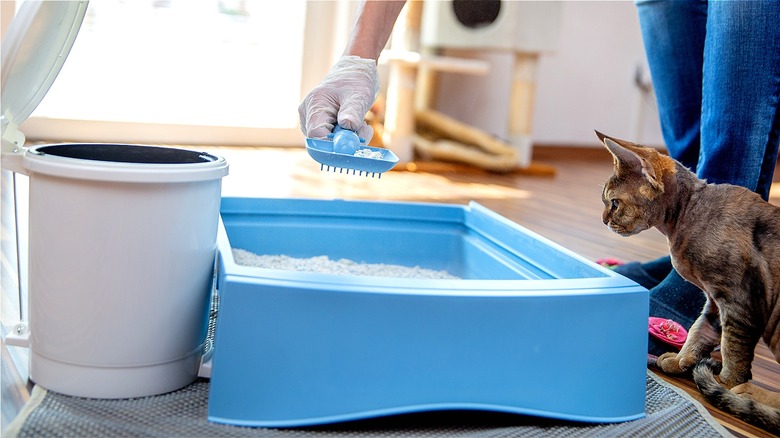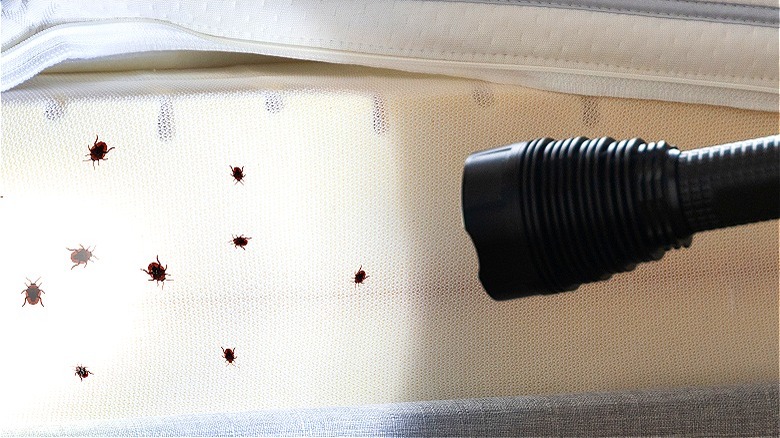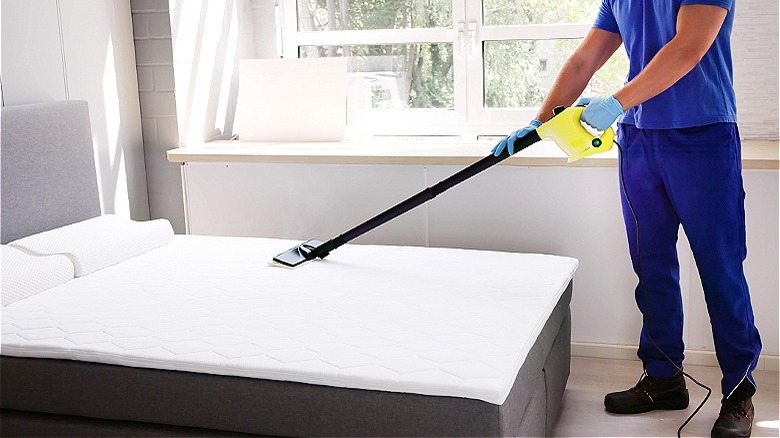Kitty Litter Is The Unexpected Secret Weapon You Need To Get Rid Of Bed Bugs
Are you tired of battling pesky bed bugs? For a solution, look no further than your furry friend's favorite spot: the kitty litter box! Yes, you read that right. Kitty litter could be the unexpected secret weapon you need to kick those bed bugs out of your home for good. The key to its power? Desiccation.
Bed bugs are highly vulnerable to drying out. They thrive in warm and humid environments, which is why they often hide in cozy bedding and cracks in furniture. Introducing a desiccant or drying agent, like silica gel-based cat litter, can be a game-changer in wiping out these blood-sucking insects. The tiny granules of kitty litter absorb moisture, creating an inhospitable environment for bed bugs. As these critters crawl over the cat litter, their exoskeletons will get damaged by the abrasive granules, while the drying effect of the litter makes it difficult for the bed bugs to survive the ordeal.
Combating bed bugs with kitty litter
Now that you understand the science, let's get down to the nitty-gritty of using kitty litter to fight against bed bugs. First off, for this cleaning hack, remember you'll want to opt for traditional silica-based cat litter. But before you start scattering this cat litter around your bed, you need to prepare the area: Strip your bedding, wash it in hot water, and vacuum the mattress and surrounding areas so that everything is squeaky clean. This should remove any live bugs, eggs, and debris. Additionally, make sure the room is well-ventilated or wear a face mask, as the cat litter is likely to give off a bit of dust once you begin applying it.
When ready, crush the kitty litter into a fine powder and sprinkle a generous amount around the infested areas: the bed, crevices of furniture, and any other hiding spots you suspect. Of course, the litter requires some time to complete its drying-out mission. As such, leave it be for a few days for maximum effect. During this time, the litter should work its magic by sticking to the bed bugs, cutting through their exoskeletons, and dehydrating them.
Afterward, carefully vacuum the treated areas, making sure to dispose of the vacuum bag or canister contents into a trash bag immediately, and then sealing it off to prevent any surviving bed bugs from escaping. You may need to repeat this procedure for several weeks depending on the level of infestation.
Other bed bug-busting tips
While cat litter can be an effective tool in your battle against bed bugs, there are some additional steps you can take to ensure you eliminate these pests completely and stop their return in their tracks. For one, deep cleaning the home regularly is a simple preventative measure you can take. When you do, pay special attention to spaces you know bed bugs are prone to crawl into and hide.
Second, consider investing in bed bug-proof encasements for your mattress and box spring. These items will trap any existing bed bugs in your bed and prevent them from feeding (on your blood), which will eventually exterminate them. The protective covering will also prevent new bed bugs from taking up residence in your bed.
Third, declutter any areas that need it. Bed bugs gravitate toward cluttered spaces, so give them fewer places to hide. Further, seal up cracks and crevices around your home. Taking these steps can help you stop bed bugs from becoming a problem in the first place; however, if you do face a bed bug problem in the future, know you can borrow some kitty litter from your cat to deal with it in a pinch.


